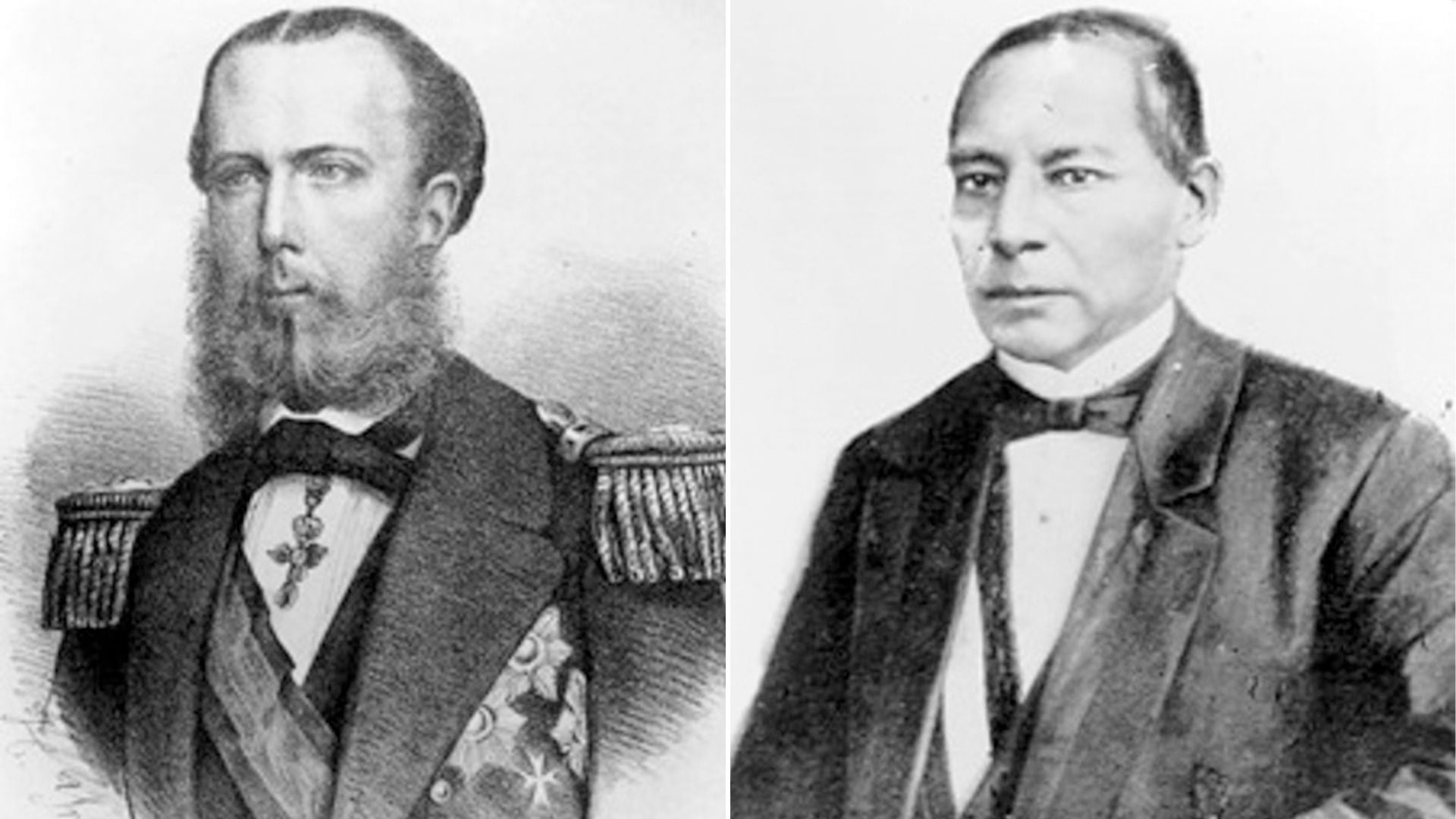
Benito Juárez is one of the most emblematic characters in national history, he is not for nothing one of the most representative symbols of the current federal administration, however, there is much controversy about whether Juárez was a “good ruler”.
Researcher Ricardo Méndez-Silva emphasizes that for a long time the so-called Benemeritus of the Americas has been accused of wanting to sell the territory to The United States as long as they helped him to establish his government in the country and to eliminate the opposition that was then the conservatives.
Maximilian of Habsburg was one of the great obstacles during the term of Juarez, as he was chosen from the French Empire to establish the Second Mexican Empire. In fact, Benito's enemies were in charge of receiving the royal couple in the Port of Veracruz on May 28, 1864.

At first, the man born on March 21, 1806 in Guelatao, Oaxaca, moved his government to the north of Mexico, while the Austrian emperor, along with his wife Carlota Amelia, were trying to get closer to Mexican society, especially the aristocracy, in the country's capital. Over time, the then emperor and the empress also fell in love with the culture of the territory.
Although the process of struggle against Europeans was long, the president and representative of the liberals managed to return triumphantly on July 15, 1867 to Mexico City, not before having shot Maximiliano and Generals Miguel Miramón and Tomás Mejia.

The Oaxacan stated in his Manifesto Justifying National Punishments in Querétaro that the main reason why he decided to end the life of the European was to show the world that no imperial house could end national sovereignty. In this way he showed that the consequences would be hard and firm for anyone who wanted to attack democracy and the Mexican political system.
In the document he explained: “The foreigner who oppressed and outraged us full of pride has been afflicted, because the one who has his dwelling place in heaven is the visitor and protector of our homeland, who wounds and kills those who try to end sovereignty (...) The other side is the one who founded order on force and with force extorts, kills and does not respect authority and those who systematically persecute democracy and its defenders.”
In addition, it was the perfect culmination of a struggle, especially ideological, that the Juaristas faced for four consecutive years. The death of Habsburg represented the end of a divided nation and the end of the long battle of liberals against the conservatives, which also translated into a conflict between the State and the Church.
Although, according to the context of the moment, the Austrian's shooting seemed to be the best option, Ricardo Méndez of the Institute for Legal Research of UNAM points out that it should not be ignored that the Austrian emperor's policies were more liberal than several of the policies of the Benemérito.

In fact, its gradual change in favor of indigenous rights and support for those who needed it most were just some of the reasons why the Empire of Napoleon III withdrew its support, since the purpose of putting it to the forefront was to favor the religious interests and the aristocracy, a situation that, in the end, did not neither he nor his wife Carlota fulfilled in its entirety.
The end of the Second Mexican Empire meant the triumph of Benito, the defeat of the Europeans and the end of a great project managed by the wrong hands. Perhaps Maximilian was what Mexico needed, however, the French Machiavellian influence was the ruin of the ruler.
The researcher also comments that although the country escaped from European clutches, it didn't take long for the Americans to get involved, which in one way or another, would have sought a way to dominate and impose their influence, a situation that didn't cost much work with Benito as president.
KEEP READING:
Últimas Noticias
Debanhi Escobar: they secured the motel where she was found lifeless in a cistern
Members of the Specialized Prosecutor's Office in Nuevo León secured the Nueva Castilla Motel as part of the investigations into the case

The oldest person in the world died at the age of 119
Kane Tanaka lived in Japan. She was born six months earlier than George Orwell, the same year that the Wright brothers first flew, and Marie Curie became the first woman to win a Nobel Prize

Macabre find in CDMX: they left a body bagged and tied in a taxi
The body was left in the back seats of the car. It was covered with black bags and tied with industrial tape
The eagles of America will face Manchester City in a duel of legends. Here are the details
The top Mexican football champion will play a match with Pep Guardiola's squad in the Lone Star Cup

Why is it good to bring dogs out to know the world when they are puppies
A so-called protection against the spread of diseases threatens the integral development of dogs




